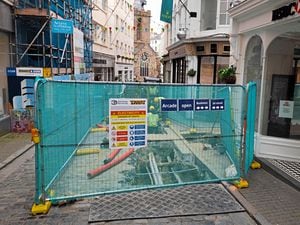Schools, colleges likely to stay shut next week as cases reach 107
COVID-19 case numbers have now reached 107 and affect 11 education settings.

For the first time, the press briefing was entirely digital, with CCA chair Peter Ferbrache and Dr Nicola Brink tuning in via Teams, along with members of the local media.
It was still broadcast in the usual way on the Govgg Facebook page and Covid-19 website.
Deputy Ferbrache said this was undoubtedly a difficult time and confirmed case numbers were rising slowly.
'We want to keep businesses afloat and keep people employed,' he said about the co-payroll funding and hardship fund.
'But the message is simple: if you don't need to claim, don't claim it, but if you do, do claim it.'
Turning to schools and early years providers he said a decision would be made soon whether they will re-open to vulnerable students and children of key workers.
'It's much more likely than not that those establishments will be closed again next week,' he said.
'We want to make sure that when children go back to schools [and everybody else that works in those environments], they are safe.'
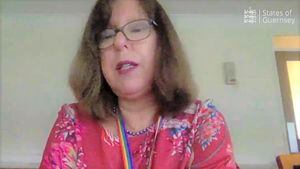
The message remained: keep away from everyone else as much as you can.
Director of Public Health Dr Nicola Brink gave an overview of the situation.
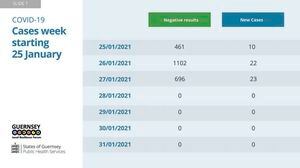
'Today we've seen more positives that won't appear until the data is collected up until midnight tonight,' she said.
With contact tracing she said priority was being given to those with the greatest risk of transmission.
'Immediate self-isolation is how we will get on top of this situation.'
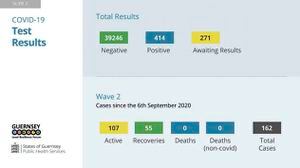
'All-in-all we've had 414 positive results from when we saw our first case on 9 March last year.'
In the second wave the Bailiwick has seen 162 cases, 107 of which are active now.
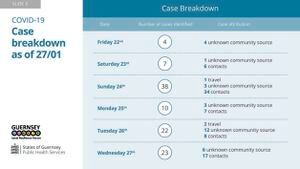
'What we want to see is the majority of our cases being seen through contact tracing because those are cases we know about who are in self-isoaltion,' she said.
It is important that anyone identified as positive goes into isolation to stop that cycle of transmission.
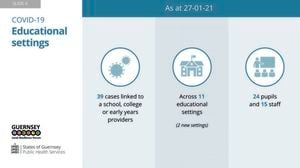
Now, 39 cases have been linked to a school, college or early years provider across 11 education settings.
Individual advice has been given to each setting - such as isolating or coming forward for testing if people are symptomatic.
Any area of particular concern will be given specific advice as testing capacity needs to be focussed on symptomatic people and keeping the critical infrastructure running - not cohort testing.
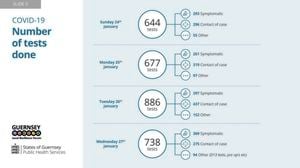
Breaking down the data into how many people were tested because they were symptomatic or because they were contacts of cases, Dr Brink said the level of positivity within symptomatic cases was an important figure.
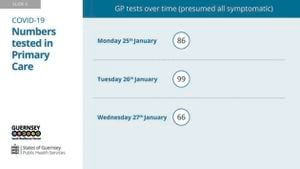
Testing capacity in primary care has been ramped up.
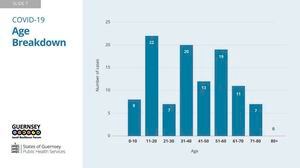
Most of the cases represent cases in school settings, with the next highest numbers being parent/teacher ages.
Dr Brink said the seven cases in people over 70 was concerning as they are more vulnerable to the affects of the virus.
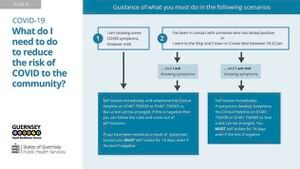
She took the time to map out what people should do if they have symptoms, have been in contact with someone who has tested positive or went to the Ship & Crown or Crows Nest between 18 and 22 January.
'If you've been tested as a result of a contact and have respiratory symptoms, you must do your full 14 days of isolation because you don't know if you're going to become infected,' she said.
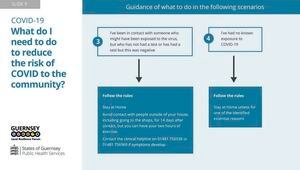

She asked people to have an additional layer of caution if they have any concerns to try and minimise contact with other individuals.
For the majority of islanders who have had no known exposure to Covid-19 she urged them to follow the lockdown rules to protect themselves and the rest of the community.
Talking about vaccines, she said any leftovers are used up for health care workers and other priority groups who can come into the centre at short notice.
On average we are able to get around 20 extra vaccinations per vaccination day, she said, so the vaccine is being used to its maximum capacity.
'Our main strategy to control this virus is lockdown, with the next level down being self-isolation.
'Below that sits the testing strategy but we all need to work together to get on top of this.'



